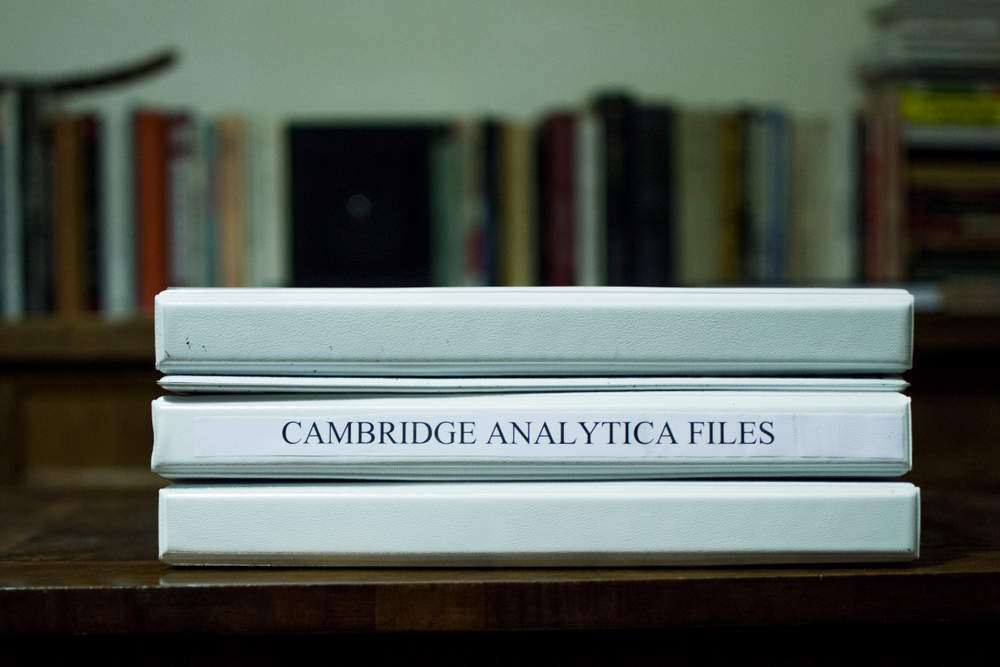
The media storm around data and communications company Cambridge Analytica shows no sign of abating.
Here are today’s key updates on this sprawling story.

Access deeper industry intelligence
Experience unmatched clarity with a single platform that combines unique data, AI, and human expertise.
Data scientist defends his role
Aleksandr Kogan, the data scientist who harvested the Facebook data allegedly used by Cambridge Analytica, claimed that he has been made a scapegoat by both companies in an interview on Radio 4’s Today programme this morning.
The Cambridge University academic created a personality survey in 2014 that connected to Facebook, collecting data on some 270,000 users and, crucially, their friends, expanding into a dataset of around 50 million people.
Christopher Wylie, the whistleblowing former employee of Cambridge Analytica, claimed earlier this week that this data was then acquired, analysed and held by Cambridge Analytica.
Kogan told the Today programme that he was completely unaware that his data collection might violate Facebook’s policies (which they have claimed it did) and that he was advised by Cambridge Analytica that “everything was perfectly legal and within the terms of service”.

US Tariffs are shifting - will you react or anticipate?
Don’t let policy changes catch you off guard. Stay proactive with real-time data and expert analysis.
By GlobalDataKogan said:
The events of the past week have been a total shell shock, and my view is that I’m being basically used as a scapegoat by both Facebook and Cambridge Analytica when…we thought we were doing something that was really normal.
Kogan also said that the dataset was far less accurate than implied by Cambridge Analytica and would have been more likely to hurt US president Donald Trump’s presidential campaign than help it.
Another undercover revelation
UK TV broadcaster Channel 4 aired the second part of their undercover report last night, featuring Cambridge Analytica executives discussing the company’s involvement in the Trump campaign with a fixer posing as a potential client.
Former CEO Alexander Nix (who was removed from his post yesterday; more below) was recorded boasting that Cambridge Analytica was instrumental in Trump’s presidency bid, saying:
We did all the research, all the data, all the analytics, all the targeting, we ran all the digital campaign, the television campaign and our data informed all the strategy.
Mark Turnbull, managing director of Cambridge Analytica’s political division, spoke about the narrow margin by which the US presidential election was swung, saying that “40,000 votes” in three states allowed Trump to win the electoral college vote despite losing the popular vote, and implying that the result was due to their work.
Turnbull then explained that Cambridge Analytica could create proxy organisations to discreetly feed negative material on to the internet and social media.
He also took credit for the “Crooked Hillary” messaging that pervaded social media in the run up to the election.
The executives were filmed claiming that Cambridge Analytica used a dual strategy of putting out positive messages through Trump’s official campaign channels while pushing negative media through outside organisations.
Under US election law, coordination between an official election campaign and any outside groups is illegal.
Cambridge Analytica claim there was no wrongdoing and that they maintained a strict firewall between the two sides of activity.
Channel 4’s report included clips of Nix and Turnbull discussing how their company used emails with a “self-destruct” timer to avoid paper trails.
Nix also spoke of giving evidence to the House Intelligence Committee – the US House of Representatives body which oversees intelligence activity – in 2017, saying:
They’re politicians, they’re not technical. They don’t understand how it works.
Nix nixed
Cambridge Analytica released a statement yesterday announcing the suspension of Nix as CEO.
The company said:
In the view of the board, Mr Nix’s recent comments secretly recorded by Channel 4 and other allegations do not represent the values or operations of the firm and his suspension reflects the seriousness with which we view this violation.
The statement said that Nix’s suspension will be accompanied by a “full independent investigation” by British barrister Julian Malins.
However, according to Carole Cadwalladr, the investigative journalist who initially broke the story for the Guardian, Nix remains at the head of SCL elections, Cambridge Analytica’s parent company.
Cadwalladr also claimed that Cambridge Analytica is itself a shell company, which would mean the suspension of Nix is a less-than-substantial move by executives.
Look. This is in Cambridge Analytica’s own words (from when it was trying to sue us). It’s a shell company with no employees. What exactly has Alexander Nix been suspended from??? pic.twitter.com/mgRDZEUIH0
— Carole Cadwalladr (@carolecadwalla) March 20, 2018
Following the Channel 4 report, the House Intelligence Committee has stated that they have “serious questions about the truthfulness of Mr Nix’s testimony and it his necessary to compel his in-person appearance before our committee”.
Whistleblower Christopher Wylie has already agreed to give testimony to the committee.
The pressure is building for Facebook
Speculation around the extent of Facebook’s awareness of Cambridge Analytica’s acquisition of user data – as well as the extent to which they provide data to advertisers – is now heightening.
There has been no official statement yet on the scandal from either Facebook CEO Mark Zuckerberg or COO Sheryl Sandberg, although the company says that they are working “round the clock”.
Facebook’s market value has now dropped by $50 billion since the story broke, more than the market cap of electric vehicle company Tesla.
Meanwhile, Brian Acton – the co-founder of the WhatsApp messaging platform which Facebook bought for $16 billion in 2014 – tweeted that it was time for individual users to delete Facebook.
It is time. #deletefacebook
— Brian Acton (@brianacton) March 20, 2018
The number of people googling “how to delete Facebook” has been spiking in the UK over the past few days.







